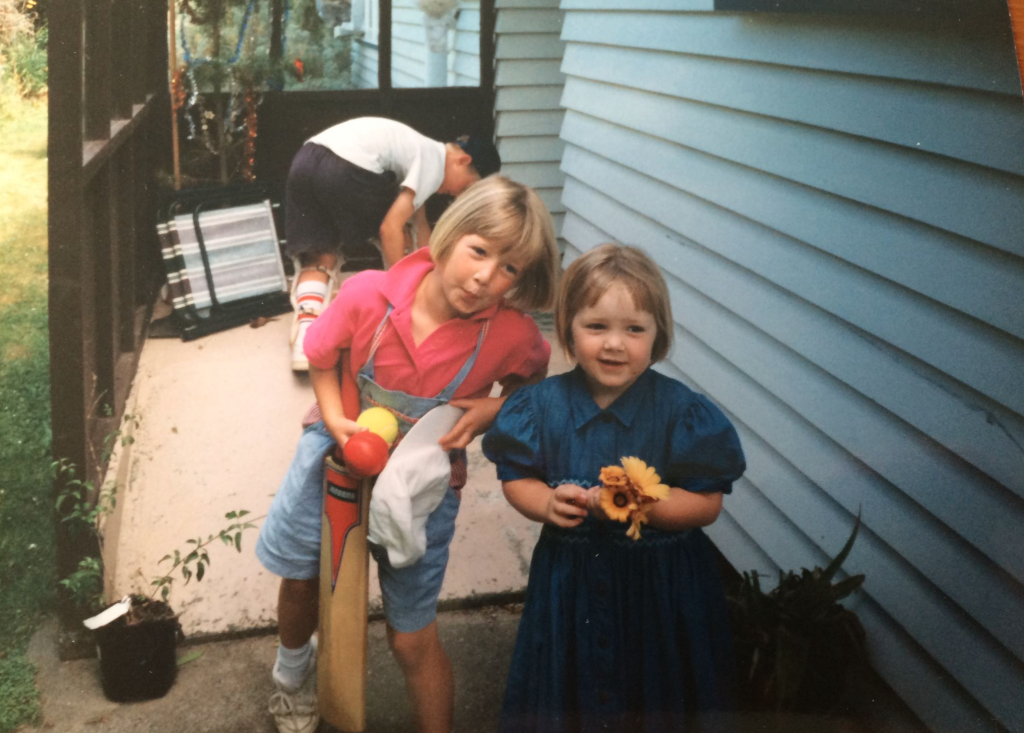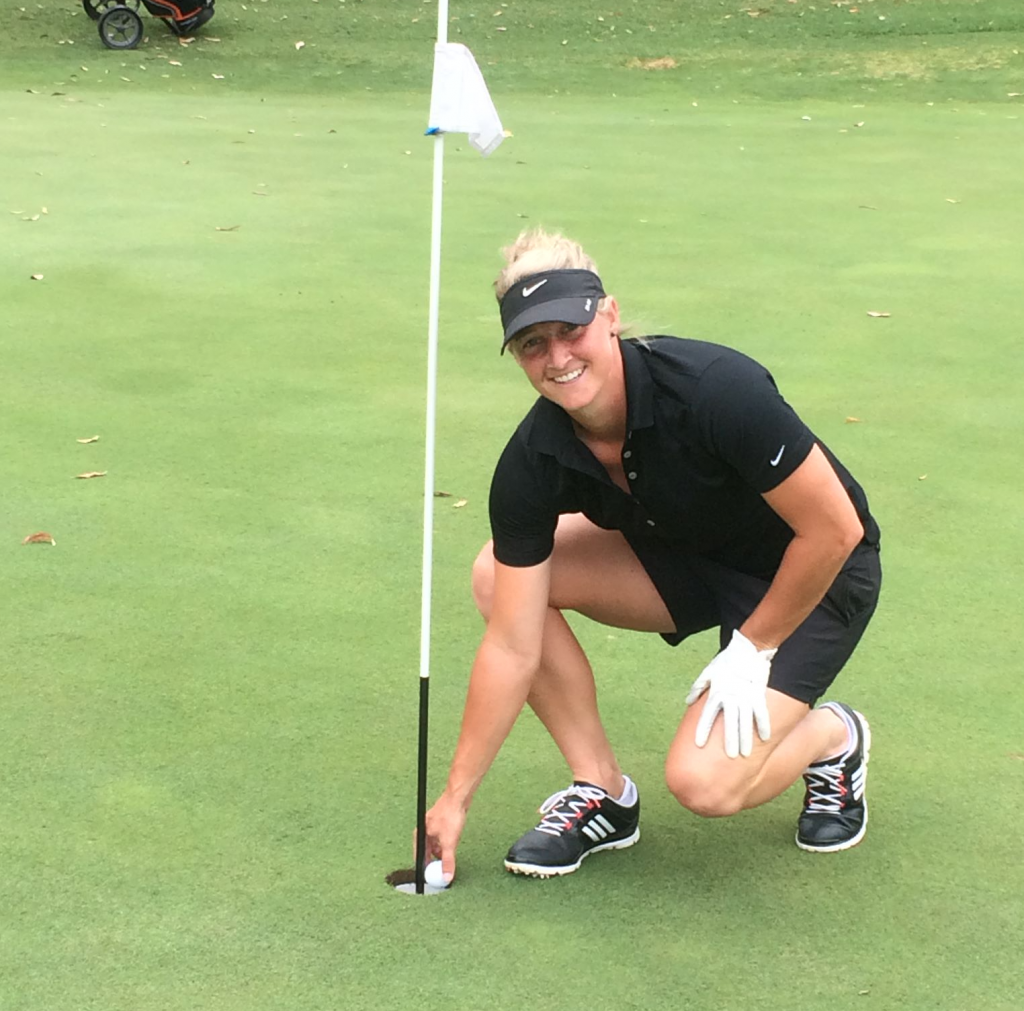White Ferns cricket captain Sophie Devine has never understood early specialisation in sport. It’s one of the reasons why the Wellingtonian is a Balance is Better Champion, to spread the word about the positive spin-offs from playing multiple sports at a young age.
“It’s a real peeve of mine seeing kids being told to pick a sport when they’re nine years old, and that links into other areas such as athlete burnout and drop-out rates at a time when they should simply be participating and having fun.”
Her story is quite the opposite and she hopes by sharing her journey it may change mindsets.
While a huge focus is on performance and winning at elite level, Sophie says she has never lost sight of the reason she plays – to have fun.
“Within the White Ferns we focus on why we play the game and everyone’s story is different but it’s not all about winning.
“Some want to give back or make their families proud, for others it may be that someone has inspired them to be the best that they can be.
“At top level there’s a huge element of having fun, and it should be the same in youth sport – that focus on winning can affect the development of our young people, and they’re missing out on opportunities to just play sport.
“You play sport not because you win a medal at the end of the season, it’s because you make great friendships, learn new skills, learn about being part of a team and grow as an individual.”
Sophie, also a former New Zealand hockey player, was first selected for the White Ferns in 2006 and named both the ODI and T20 women’s Player of the Year for the 2017/18 season. She also holds the world record for scoring the fastest ever 50 in Women’s Twenty20 International (from 18 balls).
She has returned home for the summer from her adopted home team Perth Scorchers to play for her hometown Wellington Blaze and some internationals with the White Ferns, all with an eye to the delayed ICC Women’s World Cup in 2022.
Sports experiences galore

Growing up Sophie had countless opportunities to play sport, everything from cricket, hockey, basketball, soccer and netball.
“I was extremely fortunate that my parents never forced me to choose a certain sport, they were completely guided by what I wanted to do, nothing was off-limits.
“Looking back now that has had a massive effect on my career and the skillset I have, it’s purely down to the opportunity to play multiple sports growing up.
“You learn different skills, hand-eye co-ordination, fitness, agility, and you have a variety of coaches.”
While the focus was always on fun, there were life lessons Sophie also learnt from losing.
“I absolutely hate losing, but I know it’s a really important way to identify areas where I can improve, opportunities to grow my game or me as a person and be the best person I can be.
“Rather than tell someone they’re a failure and no good if they lose we need to help our youth learn from losing and grow from it.”
Influences close to home
One of Sophie’s biggest influences has been her Dad, who she describes as an absolute “sports nut” nearing 60 and still playing cricket with his mates over the summer months.
“He coached me for most of my younger life, and such a big part of his coaching philosophy was having fun and enjoying it, whether it was playing games, learning new skills with a bit of fun involved, he made trainings really enjoyable.
“I’ve always loved training and I give him a lot of credit for the sort of player I am today.”
In fact she still gets phone calls from him after games offering up advice.
“I’d be more concerned if he didn’t ring me up with a bit of batting advice,” she laughs.
As a toddler Sophie remembers having to follow her Dad and her brothers around cricket fields for their games and wanting to play herself.
“I had family that loved sport as much as I did, we’d spend hours in the front yard, till the sun went down, playing all kinds of sports.”
She knows her resilience stems from those childhood games, where she was often the only girl in school and club teams.
“Often higher powers would challenge a girl playing in a boys’ environment but I had great support from my parents, schools and clubs, people who knew me knew I could handle myself and that too has made me the player I am.”
Sophie’s sporting career blossomed once she reached university, deciding to jump between seasons with a hockey stick and cricket bat, both at national level.
Eventually hockey won out.
“The [Beijing] Olympics weren’t far away and I wanted to give myself the best opportunity to make that side – a lot of athletes dream of going to the Olympics and that was my focus.
“Once summer came long though I was lost without cricket, I found myself wandering around cricket parks trying to find games to watch.”
Opportunity knocks
When Sophie missed out on selection for the Black Sticks Olympic team an opportunity she didn’t see coming arose and she’s never looked back.
“I was offered one of the first professional women’s contracts with cricket, I jumped at the chance and apart from a little bit of domestic hockey and club stuff, it’s been cricket ever since.
“Never in my wildest dreams did I think I’d be playing professional cricket now and travelling the world, and playing in different leagues.”
Sophie is quick to point that if she had specialised early she would have burnt out long ago.
“If I had one sport to go to, physically and mentally I would have been cooked, but switching between codes meant different training programmes, different teams, different coaches, and that kept me going.”
Communication vital
Another key, which Sophie says her family was good at, is having open and honest conversations with coaches.
“A lot of kids play sport for school, but also club and then rep stuff, and all of those coaches want your attention and 100 percent of you all the time, it’s not realistic and there are not enough hours in the day to please everyone.”
Her family made a point of either getting everyone in the same room, or at least on the same email trail, to ensure they were all on the same page, to avoid overtraining in order to get the best out of her.
“Yet coaches/parents can get tunnel vision around players, in the bigger scheme of things they’ve only got them for a tiny moment in time, it’s just part of their athletic journey, so they have a real responsibility to ensure they have a really positive experience.
“I get so frustrated when I see coaches being demanding of young players – it’s not always about winning or making the A team, there’s more to sport, there’s school, family life, friends…”
Off the pitch
Sophie has been on a steep learning curve herself of late, fulfilling another of her dreams – to play rugby.
“I made an off-the-cuff remark about wanting to play at a meeting and I wound up playing a few games of club rugby for the Petone Ponies.
“It was daunting, coming from cricket where I’m comfortable and confident and going into a sport where I was a definite beginner was a real eye opener, but awesome!”
Yoga and golf are other loves away from the cricket pitch.

“Golf ticks a lot of boxes, I love being active, getting outdoors and away from the cricket field is important, it’s good both physically and mentally.”
Sophie plans to get her fix of both while back in Wellington for the summer.
She also knows she’ll get roped into going along to her Dad’s cricket games but she doesn’t mind.
“He’s a talented man, and proof that it doesn’t matter what age you are, you can still have fun playing sport.”
Read More: Balanced development: Kane Williamson and Sophie Devine share their stories
Image Credits: Sophie Devine







